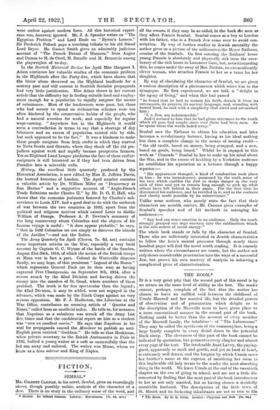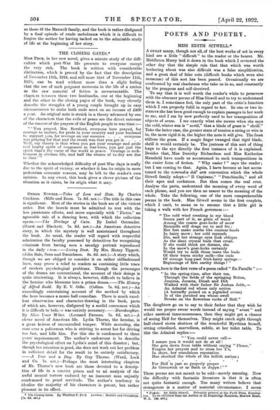THE ROOM.*
IT is a very great pity that the second part of this novel is by no means on the same level of ability as the first. The reader cannot, perhaps, 'complain of the fact that the author has chosen to leave an unfilled void between the childhood of Ursula Maxwell and her married life, but the detailed powers of observation and of presentation which delight us in the description of the Maxwells seem to have given place to a more conventional manner in the second part of the book. Nothing could be better than the account of every member of the Maxwell family, the inhabitants of " The Laburnums." They may be called the apotheosis of the commonplace, being a large family complete in every detail down to the potential black sheep. The cleverness of this part of the book cannot be indicated by quotation, but permeates every chapter and almost every page of the text. The intolerable Aunt Lavvy, the paying- guest, apparently so meek and gentle, and yet so hard at heart, is extremely well drawn, and the bargain by which Ursula eaves her brother's name at the expense of sacrificing her room to this implacable old lady seems to the reader the most absorbing thing in the world. We leave Ursula at the end of the twentieth chapter on the eve of going to school, and are not a little dis- concerted by finding that the next part of the book introduces us to her as not only married, but as having chosen a decidedly unsuitable husband. The descriptions of the little town of St. Miniot and its bickering inhabitants are not so true to life *-27m Room. By G. B. Stem. London : Chapman and Hall. 17a. et L]
as those df the Maxwell family, and the book is rather disfigured by a final episode of crude melodrama which it is difficult to forgive the author for having tacked on to the admirable study of life at the beginning of her story.



































 Previous page
Previous page